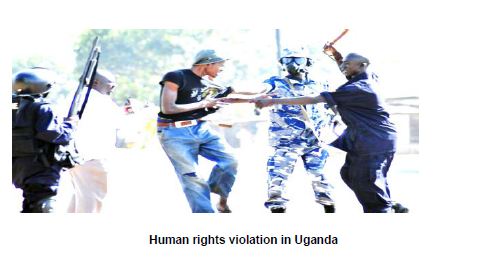Back to: History New Curriculum Question and answer s1 to s4 notes
Item fifteen History question new curriculum
In some African countries, there are rising cases of authoritarianism/dictatorial tendencies, with some leaders attempting to weaken democratic institutions and keep themselves in power. This has attracted the attention of a number of human rights groups and Civil Society Organisations, who have organised regional conferences on democratic governance. You have been identified by one of these organisations to explain the benefits of democracy and inspire citizens to defend democratic values in one of the African countries.

Task:
Write an elaborate document you will use in the regional conference above.
Expected responses;
Introduction;
The learner should clearly identify the problem in the scenario which is rising cases of dictatorial tendencies with some leaders attempting to weaken democratic institutions. Hence need to create awareness about the benefits of democracy.
Define the key concept; Democracy is a system of government where power is vested in the people, either directly or through elected representatives. It is characterized by:
•
Free and Fair Elections: The cornerstone of democracy, allowing citizens to choose their leaders.
•
Rule of Law: Laws apply equally to all individuals, ensuring justice and accountability.
•
Protection of Human Rights: Fundamental freedoms such as speech, assembly, and religion are guaranteed.
•
Pluralism and Inclusivity: Diverse opinions and groups are represented and respected.
•
Checks and Balances: Different branches of government (executive, legislative, judicial) operate independently to prevent abuse of power.
Benefits of Democracy
•
Political Stability and Peace: Democratic governments tend to be more stable and peaceful because they provide mechanisms for conflict resolution and power transitions through dialogue and elections.
•
Economic Growth and Development: Democracy create conducive environments for economic activities, fostering innovation, investment, and sustainable development.
•
Protection of Rights and Freedoms: Democracy ensures the protection of individual rights and freedoms, allowing people to express themselves, assemble, and practice their beliefs without fear of repression.
•
Accountability and Transparency: Democratic governments are held accountable by the electorate and are required to operate transparently, reducing corruption and abuse of power/good governance.
•
Social Justice and Equality: Democracies strive to promote social justice, reducing inequalities and ensuring that all citizens have equal opportunities to participate in the political process.
•
Democracy promotes the rule of law in a country/ promotes constitutionalism
•
Democracy leads to responsible governments being elected and controlled by the people.
•
Encourages free speech and press freedom
•
Fosters international cooperation.
•
It supports independent institutions and checks and balances
•
Encourages citizen engagement and activism.
In conclusion, democracy provides a foundation for fair, just and prosperous society where citizens have a voice and can hold leaders accountable.

Leave a comment